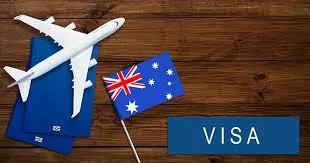Alright, settle in, grab a “fika” (we’ll get to that later!), and let’s talk about Sweden. You’re an ambitious African student, eyeing a Master’s or PhD in the land of Vikings, meatballs, and… well, surprisingly long days in summer and incredibly short ones in winter. You’re not just looking to study; you’re aiming to thrive. And that’s exactly what we’re going to unpack in this comprehensive, no-fluff guide.
Sweden Calling: Why Choose This Nordic Gem?
First things first, why Sweden? It’s not just about the Northern Lights and the stunning landscapes (though those are major perks). Sweden consistently ranks high in global indices for innovation, quality of life, and education. Here’s why it’s a magnet for international students, especially those from Africa:
- World-Class Education: Swedish universities are renowned for their research-driven approach, fostering critical thinking and independent learning. Think Nobel Prize winners, cutting-edge technology, and a collaborative academic environment.
- English Proficiency: You won’t struggle with language barriers. Most Swedes are fluent in English, making daily life and academic pursuits smoother.
- Innovation and Technology: Sweden is a hub for startups and tech giants. From Spotify to Ericsson, you’ll be immersed in a culture of innovation.
- Social Welfare and Equality: Sweden’s commitment to social welfare means you’ll have access to excellent healthcare, affordable housing (relatively speaking), and a generally safe environment.
- A Welcoming (Eventually!) Culture: While Swedes can seem reserved at first, they’re generally open and welcoming to international students.
Settling In: From Arrival to Daily Life
You’ve landed in Sweden! Now what?
- Accommodation: Finding accommodation can be challenging, especially in major cities like Stockholm, Gothenburg, and Uppsala. Student housing is often in high demand. Start your search early and consider options like student unions, private landlords, and online platforms.
- Personal Number (Personnummer): This is your key to accessing many services in Sweden, including healthcare, banking, and internet services. Apply for it as soon as possible after arriving.
- Banking and Finances: Open a Swedish bank account to manage your finances. Swish, a mobile payment app, is widely used in Sweden.
- Transportation: Sweden has an excellent public transportation system. Invest in a travel card for cost-effective travel. Biking is also a popular and healthy option, especially in cities.
- Language Learning: While English is widely spoken, learning Swedish will enrich your experience and help you integrate into society. Consider taking language courses offered by universities or community centers.
Accommodation and Cost of Living
Finding Accommodation
Housing in Sweden can be expensive and competitive, especially in cities like Stockholm, Gothenburg, and Lund.
Accommodation Options:
- Student Housing: Universities offer limited student dormitories, which should be applied for early.
- Shared Apartments: Renting with other students can reduce costs significantly.
- Private Rentals: Websites like Blocket.se and Bostad Direkt list available rental properties.
- Housing Queues: In Sweden, long-term rental contracts often require signing up for municipal housing queues.
Cost of Living in Sweden
| Expense | Estimated Monthly Cost (SEK) |
|---|---|
| Rent (shared) | 3,500 – 6,500 |
| Food | 2,500 – 3,500 |
| Transport | 550 – 800 |
| Miscellaneous | 1,000 – 2,000 |
| Total | 8,000 – 13,000 |
Money-Saving Tips:
- Shop at budget supermarkets like Lidl, Willys, and ICA Basic.
- Use public transport discounts available for students.
- Cook at home instead of eating out frequently.
The Swedish Way: Culture and Social Life
Understanding Swedish culture is essential for a smooth transition.
- “Lagom”: This Swedish concept translates to “just the right amount.” It reflects a balanced and moderate lifestyle.
- “Fika”: This is a sacred ritual involving coffee, pastries, and social interaction. It’s a great way to connect with Swedes and learn about their culture.
- Punctuality: Swedes value punctuality. Be on time for appointments and social gatherings.
- Nature and Outdoor Activities: Swedes love spending time in nature. Embrace the outdoors by hiking, biking, swimming, and skiing.
- The Importance of Social Clubs and Student Unions: These are vital for building your social life. These organizations offer a wide range of activities and events, helping you connect with fellow students and locals.
- The seasons. Prepare for the extremes. Summer has extremely long daylight hours, and winter has very short daylight hours. This can affect people differently, and being aware of the effects of seasonal depression can be very important.
Academic Life: Thriving in the Swedish System
Swedish academic culture is unique and requires adaptation.
- Independent Learning: Swedish universities emphasize independent learning and critical thinking. Be prepared to take initiative and manage your own learning.
- Collaborative Environment: While independent learning is valued, collaboration is also essential. Participate in group projects and discussions.
- Professor-Student Relationships: Professors are generally approachable and encourage open communication. Don’t hesitate to seek their guidance and support.
- Academic Integrity: Sweden has strict rules regarding academic integrity. Plagiarism is taken seriously. Ensure you understand and adhere to academic standards.
- PhD Culture: PhD programs are often very research-focused. Be prepared for a rigorous and demanding experience. Networking and attending conferences are crucial for your academic career.
Food and Grocery Shopping
Where to Find African Food
Missing home flavors? Many cities have African grocery stores where you can buy staples like yam, plantain, cassava flour, and spices.
- Stockholm: Afro-Caribbean Market, Taj Mahal Livs.
- Gothenburg: World Food Market, Afro Market.
- Malmö: Matvärlden, African Delight.
Cooking vs. Eating Out
- Cooking at home is cheaper and healthier.
- Eating out can be expensive (average meal: SEK 100 – 200).
- University cafeterias offer affordable student meals (SEK 50 – 80).
Transportation in Sweden
Public Transport
- Sweden has an efficient train, bus, and tram system.
- Students get discounts on monthly transport passes (SEK 500 – 750).
- Biking is popular and affordable in student cities.
Banking and Mobile Services
- Open a Swedish bank account for easy transactions.
- Use Swish (mobile payment app) for daily purchases.
- Affordable phone plans: Comviq, Halebop, and Lycamobile.
African Community and Support Networks
Connecting with the African community in Sweden can provide valuable support and a sense of belonging.
- African Student Associations: Join African student associations at your university or in your city. These organizations organize cultural events, social gatherings, and support networks.
- Online Communities: Connect with African students and professionals in Sweden through online forums and social media groups.
- Cultural Events and Festivals: Attend African cultural events and festivals to celebrate your heritage and connect with the community.
Healthcare and Safety
Healthcare for International Students
- If your study program lasts over 12 months, you are eligible for Sweden’s public healthcare system.
- If staying for less than 12 months, you must get private health insurance.
Staying Safe in Sweden
- Sweden is generally very safe, but always be cautious of pickpocketing in busy areas.
- In emergencies, dial 112 for police, ambulance, or fire services.
Thriving Beyond Academics: Career and Personal Growth
Your time in Sweden is an opportunity for personal and professional growth.
- Career Opportunities: Explore career opportunities in Sweden. Network with professionals in your field and attend career fairs.
- Entrepreneurship: Sweden has a thriving startup ecosystem. Consider exploring entrepreneurial opportunities.
- Personal Development: Embrace the opportunity to learn new skills, explore new interests, and expand your horizons.
- Travel: Take advantage of Sweden’s location and explore other European countries.
Addressing Potential Challenges
Let’s be real, it’s not all sunshine and meatballs. You might encounter challenges:
- Loneliness and Culture Shock: Adapting to a new culture can be challenging. Seek support from friends, family, and student support services.
- Financial Strain: Managing finances can be difficult. Create a budget and explore part-time job opportunities.
- Weather and Seasonal Affective Disorder (SAD): The long, dark winters can affect your mood. Seek support and consider light therapy.
- Housing issues: Finding adequate and affordable housing is a big issue in Sweden.
Final Thoughts: Embrace the Adventure
Living and thriving in Sweden as an African Master’s or PhD student is an incredible opportunity. Embrace the adventure, be open to new experiences, and don’t be afraid to ask for help. Remember, you’re not just a student; you’re a cultural ambassador, a future leader, and a valuable member of the global community.
Sweden is a land of possibilities. By being prepared, adaptable, and proactive, you can make the most of your time in this Nordic gem and build a bright future. So, go ahead, take that “fika,” and start your Swedish adventure!

